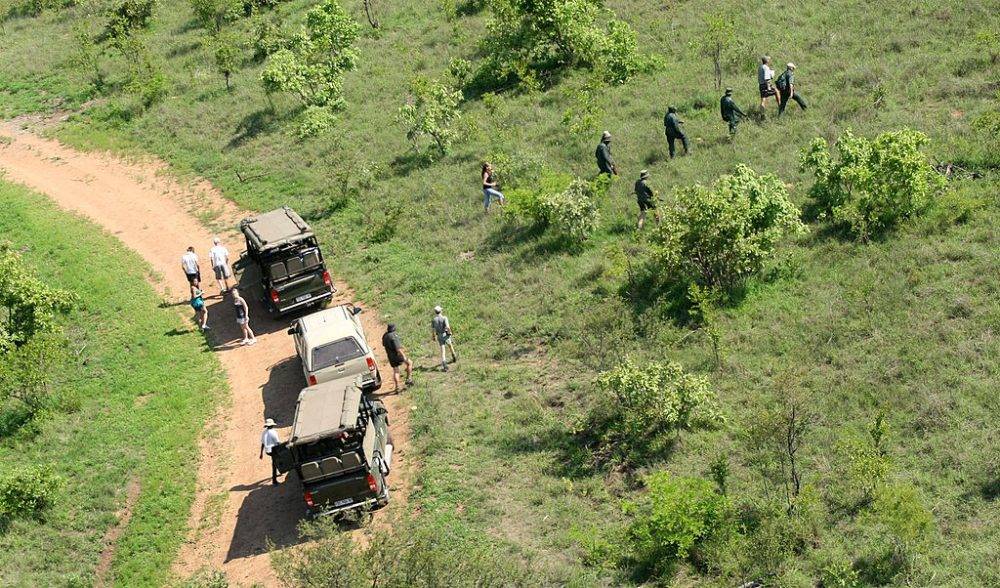
A new report predicts that the effect of climate change will cause a 4% drop in visitors Kruger National Park by 2050. (Photo by Foto24/Gallo Images/Getty Images)
Extreme weather threatens plants and animals that are key attractions for tourism and agriculture, and will hurt the operations of entities such as national parks, a new report on climate change says.
The University of Cape Town report written by climate scientist Peter Johnston and five co-authors highlighted the negative effects of climate change on people who rely on farming and the tourism industry, including national parks, for their livelihoods. These harms include heat stress, less suitable land for crops, drought, flooding and damage to infrastructure.
One of the areas the report focused on was the Kruger National Park, which risks seeing a 4% decrease in visitors by 2050 because of climate change-induced weather such as extreme heat and flooding.
The park is a key tourism earner for South Africa; contributing R2.6 billion to GDP in 2017 and supporting more than 10 000 jobs. This was achieved through the integration of various amenities and recreational activities, ranging from accommodation and dining venues to conference facilities and outdoor pursuits such as watching wildlife, hiking and photography, the report said.
Climate change poses a significant threat to wildlife, resulting in distress and mortality among animals and birds, the report said. “Encroachment of woody trees and shrubs on grazing areas due to increased atmospheric carbon dioxide is also reducing the number of animals that can be supported [by national parks].”
South African National Parks spokesperson Isaac Phaahla said the Kruger National Park has a unit that is looking at mitigating solutions for the negative effects of climate change.
He added that despite some instances of extreme weather conditions, the park has not seen a decline in visitors.
The report said heatwaves, floods and droughts were likely to reduce job security and water availability, with consequences for food production in key growing areas. The frequency of low-rainfall years in the country had doubled and made the land less suitable for animals to graze, it noted.
It said despite an overall drying trend across the country, in eastern South Africa heavy rainfall was projected to increase, making the region more prone to flooding. “Tropical cyclones, although not necessarily more frequent, may become more intense.”
The scientists behind the research recommended limiting greenhouse gas emissions to improve the everyday lives and experiences of South Africans by embracing its solar abundance to limit the effects of climate change.
“Much of South Africa’s economic future hinges on the speed with which investments in its solar and wind resources can replace coal and provide affordable and reliable electricity,”
the report said.
The report said South Africa’s resources, including agriculture and biodiversity, were imperilled by climate change. It emphasised the critical role of all people, and in particular policymakers and planners, in shaping the country’s response to climate change.
 (1).png)
 9 months ago
32
9 months ago
32


















